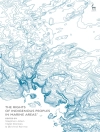This large-scale comparative study analyses the two principal mechanisms employed in modern legal systems to deal with the social problem of occupational illness and injury, namely, employers’ liability and workers’ compensation. It provides a detailed description of the systems in operation in twelve countries around the world, investigating the complex legal structures and the interaction with other social institutions, as well as their inter-jurisdictional coordination through private international law. Current international trends are identified and assessed and the fundamental political issues highlighted and explored. The study’s ultimate goals are not only descriptive but also to answer the question of how compensation and liability systems can best be adapted to meet society’s needs in the 21st century.
The countries covered are: Australia (Mark Lunney), Austria (Ernst Karner/Felix Kernbichler), Denmark (Vibe Ulfbeck), England and Wales (Richard Lewis), France (Florence G’Sell/Isabelle Veillard), Germany (Raimund Waltermann), Italy (Alessandro P Scarso/Massimo Foglia), Japan (Keizo Yamamoto/Tomohiro Yoshimasa), the Netherlands (Siewert D Lindenbergh), Poland (Domenika Dörre-Nowak), Romania (Christian Alunaru/Lucian Bojin) and the United States of America (Michael D Green/Daniel S Murdock).
The book is completed by three concluding essays that address general themes:
-
Thomas Thiede, The European Coordination of Employers’ Liability and Workers’ Compensation
-
Ken Oliphant, The Changing Landscape of Work Injury Claims: Challenges for Employers’ Liability and Workers’ Compensation
- Gerhard Wagner, New Perspectives on Employers’ Liability – Basic Policy Issues
Tentang Penulis
Ken Oliphant, Institute for European Tort Law, Vienna, Austria; Gerhard Wagner, University of Chicago, Chicago, USA.












